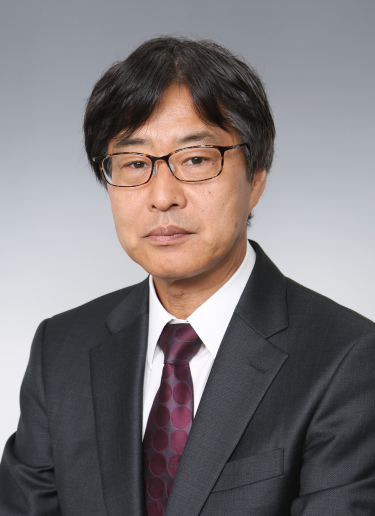Our Institute is committed to education and research in the fields of medical science, public health, and nursing science, as well as clinical practice at the university hospital.
Message from the Dean, Institute of Medicine

Dean, Institute of Medicine
Aiming to become the core center of "Tsukuba Bio Valley"
In 2023, the University of Tsukuba celebrated the 151st anniversary of its founding and the 50th anniversary of its opening in Tsukuba. Since its opening, the university has been undergoing continuous reform to become a new university with a new vision. We must continue to reform and develop for the next 50 years. The University of Tsukuba has independent faculties and educational organizations, which allows for flexible organizational management. Another feature is that it was established as an open university with low barriers within and outside the university. The Institute of Medicine will make full use of these advantages to carry out flexible organizational management that anticipates changes of the times, such as the modification of faculty organization, the participation of outsiders in the university’s education and research through the collaborative graduate school system, the establishment of new programs in undergraduate and graduate schools that meet the needs of the times, and the consolidation or elimination of existing programs.
The Institute of Medicine is primarily responsible for teaching in the undergraduate and graduate medical programs. The School of Medicine and Medical Sciences consists of the School of Medicine, the School of Medical Sciences, and the School of Nursing, and trains medical professionals and medical researchers in the prevention, diagnosis, and treatment of diseases and in nursing. Based on the words of Jigoro Kano, President of Tokyo Higher Normal School, the predecessor of the University of Tsukuba, "By educating one person and sending him into the society of his generation, we make a contribution that extends to a hundred generations to come," as the only medical education institution in Ibaraki Prefecture, we will continue to contribute to the development of medical professionals and researchers.
The University of Tsukuba moved to Tsukuba Science City when it opened and has developed together with Tsukuba Science City. Tsukuba Science City is home to 29 national and other research institutes, including the National Institute for Advanced Industrial Science and Technology (AIST), the National Institute for Materials Science (NIMS), the High Energy Accelerator Research Organization (KEK), the Japan Aerospace Exploration Agency (JAXA), the National Agriculture and Food Research Organization (NARO), RIKEN, the National Institute for Environmental Studies (NIES), and the National Institute of Biomedical Innovation, Health and Nutrition (NIBIO), and nearly 200 private institutes, making it one of the largest science cities in the world. In the field of medicine and health care, we will strengthen research collaboration with these research institutions in the Tsukuba area and overseas through the activities of affiliated hospitals, the Tsukuba Clinical Research and Development Organization (T-CReDO), the Tsukuba Digital-Bio International Center, the Transborder Medical Research Center, and the cooperative graduate school system. In particular, given its concentration of various medical and biological research institutes, the Tsukuba area has the potential to become an international medical-biological research center. Just as "Silicon Valley" was formed over several decades by ventures founded by Stanford University and its graduates, we hope to create a "Tsukuba Bio Valley" with the Institute of Medicine at its core.



